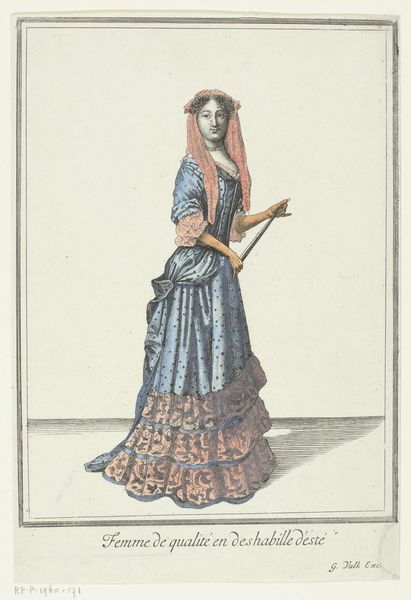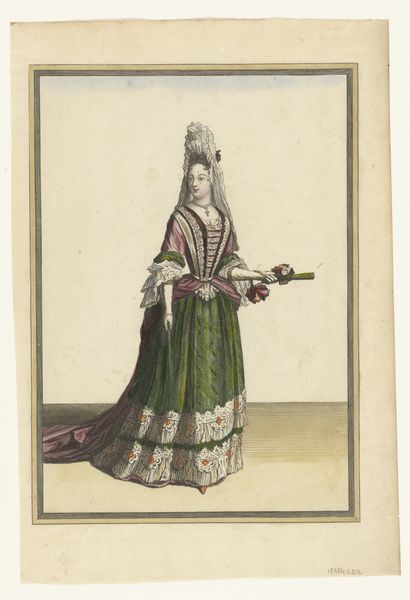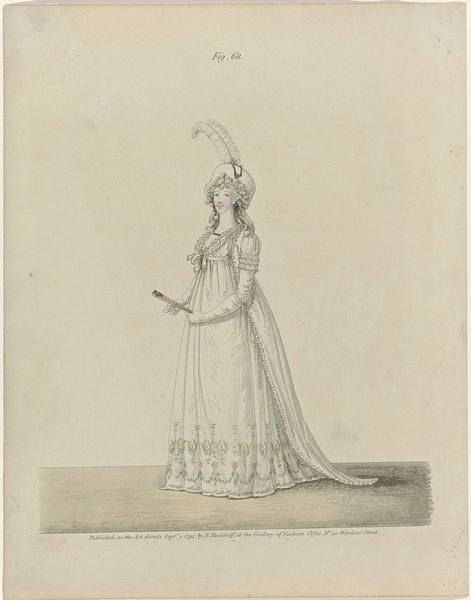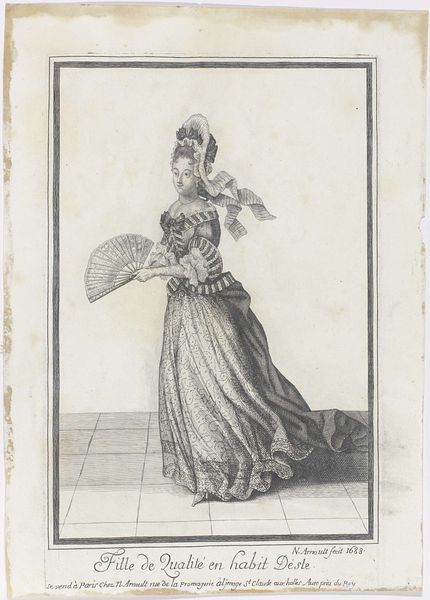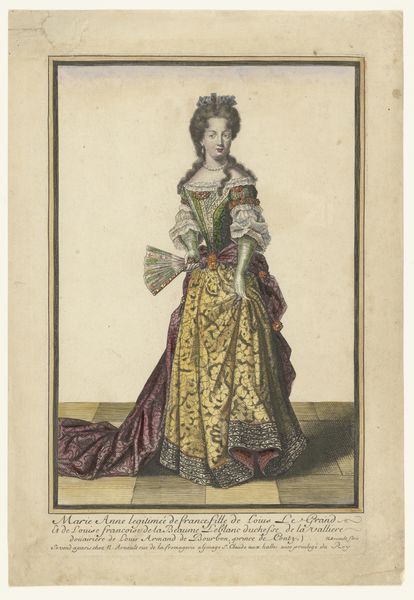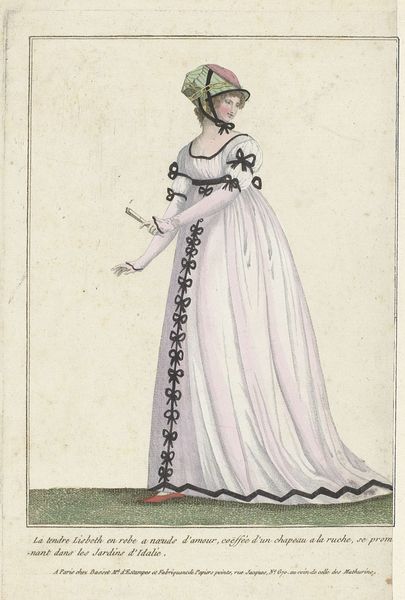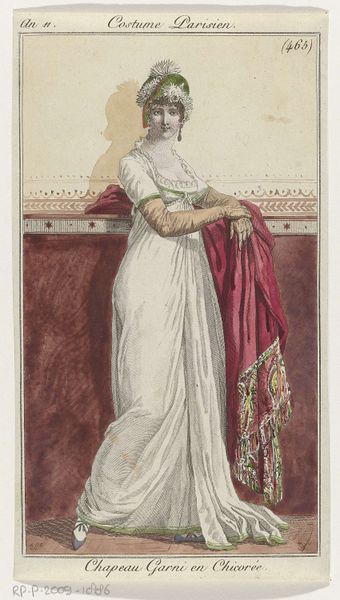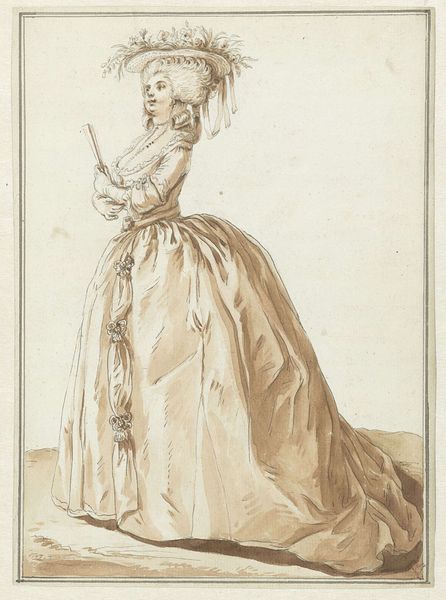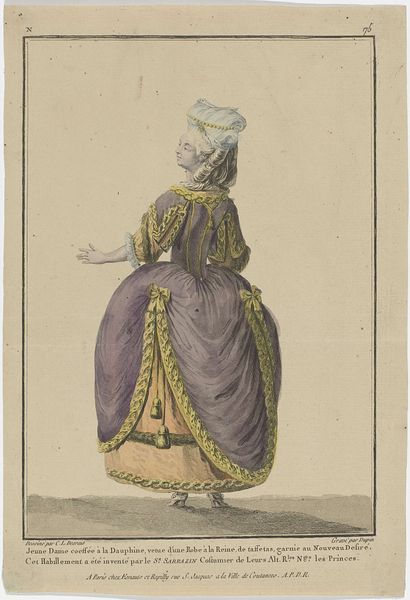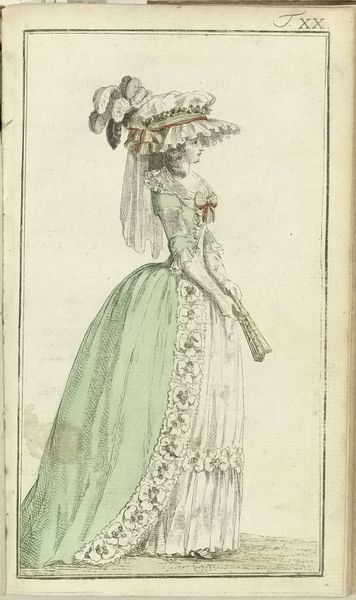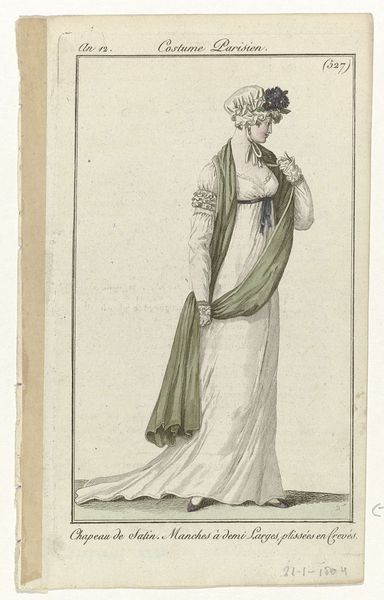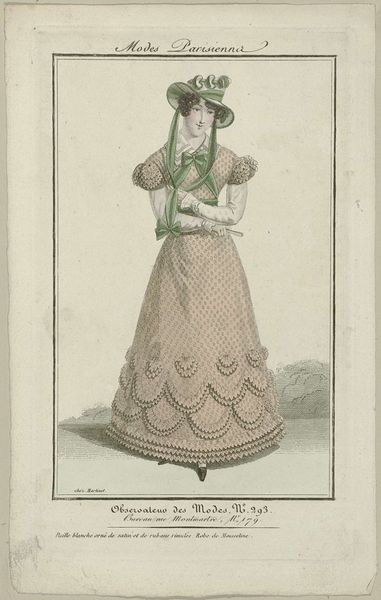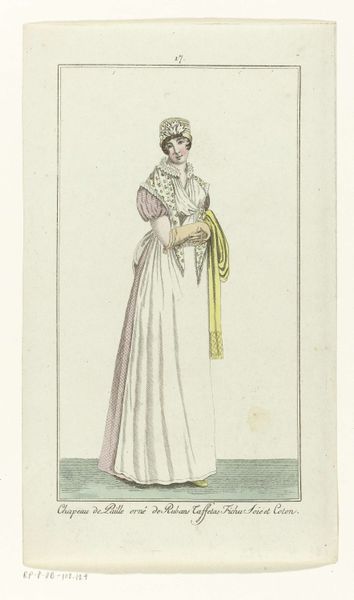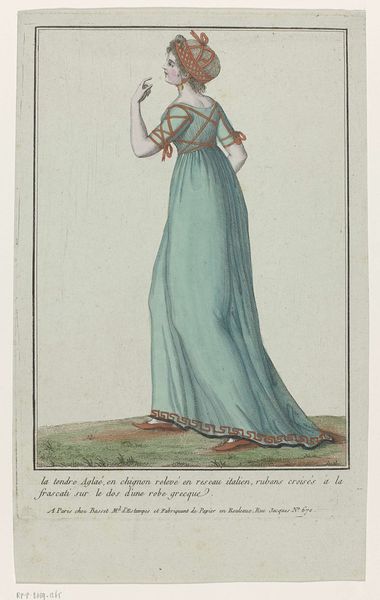
drawing, paper, ink
#
drawing
#
baroque
#
paper
#
historical fashion
#
ink
#
watercolour illustration
#
genre-painting
#
history-painting
Dimensions: height mm, width mm
Copyright: Rijks Museum: Open Domain
Curator: Here we have a piece entitled "Femme de qualité en deshabillé d'esté," created by Dieu de Saint Jean in 1683. It's rendered in ink and watercolour on paper. Editor: It’s delicate. The lines are so precise and thin, especially in her lace. There's an undeniable softness. Curator: Indeed. This work offers us insight into the history-painting and genre-painting that shaped French society and its representations. Notice how Saint Jean captures the era's fashionable ideal through a refined yet understated style. Editor: The historical fashion here is striking, and this portrayal offers us an ideal in presentation during that time period. However, I'm immediately drawn to how the delicate lines create a sense of distance. She’s a figure rendered with technical skill, certainly, but somehow… remote. What is the affect of her gaze? Curator: That distance is cultivated. Consider this within the social structure of the time: displaying the attributes of leisure and the visual assertion of wealth and power. Editor: Do you think it serves primarily as a piece of social documentation then? I find the baroque stylistic choices so interesting because it serves as a study in contrasts, from line to colour—do you see it that way? Curator: Certainly. Though to disregard the societal echoes within this seemingly intimate portrait would be a disservice to its function. As a drawing produced on paper using ink and watercolor, this embodies the values and customs in representation of an aristocratic woman. Editor: It's true; art rarely exists in a vacuum, no matter how enclosed its subject may seem. It’s rewarding to see the connection between an aesthetic framework like the Baroque, with its penchant for dynamism and opulence, reinterpreted into this carefully rendered scene. Curator: Ultimately, considering the interplay of social history and artistic application grants us a richer, nuanced experience. Editor: Absolutely. Understanding both what we see and the circumstances of its creation deepens our perception.
Comments
No comments
Be the first to comment and join the conversation on the ultimate creative platform.
